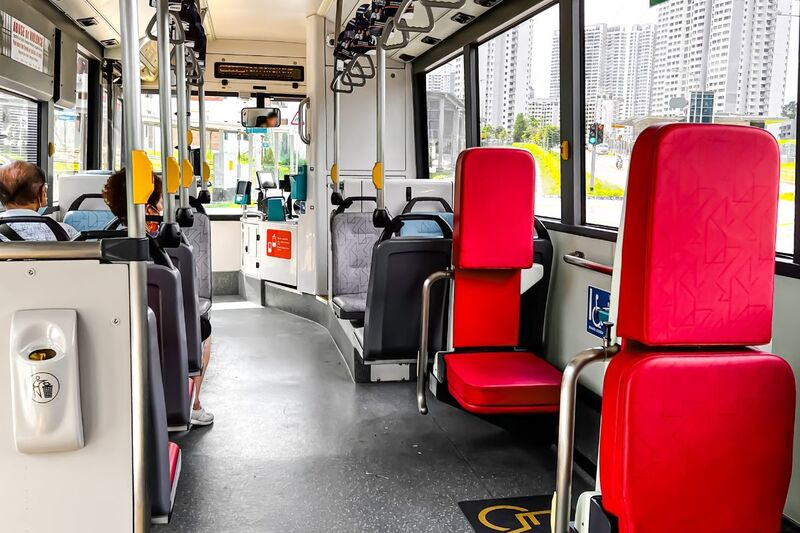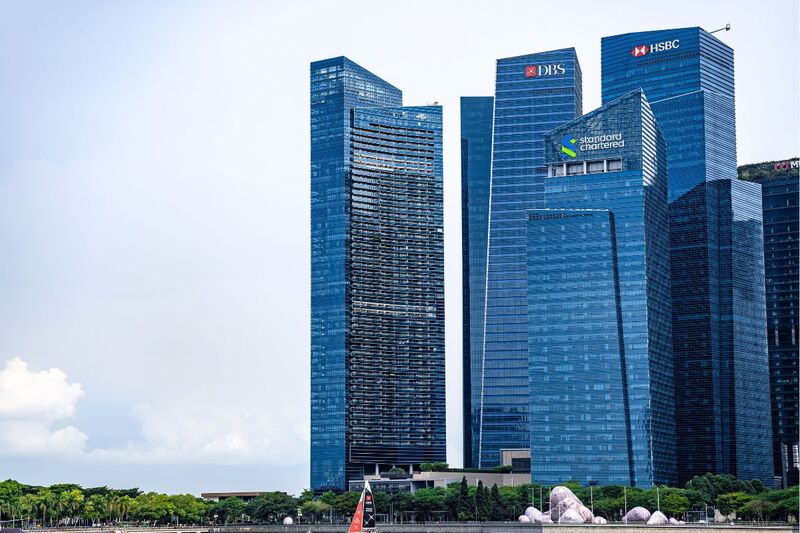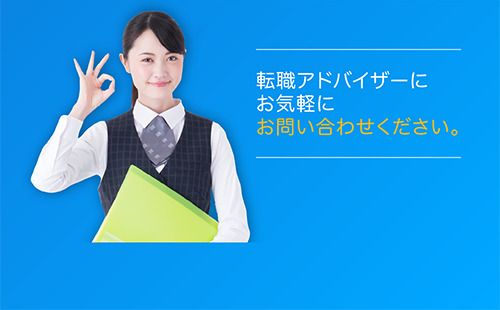New MRT & Bus Rules 2025: The Commuter’s Jobseeker Guide

This article is written in English for readers in Singapore. Chinese and Japanese translations are available on our website.
Singapore’s New Commuting Rules: What Jobseekers Need to Know
From October 2025, Singapore’s Land Transport Authority (LTA) introduced several updates to improve commuter safety, accessibility, and travel experience across MRT and bus networks.
While the changes may seem routine, they have a direct impact on punctuality, professionalism, and daily job-hunting routines.
According to MOM’s Labour Force Report 2025, 7 in 10 Singapore workers rely on public transport as their primary commute mode. For jobseekers, understanding these updates can mean the difference between arriving on time — or missing an interview altogether.
1. No Eating, No Loud Devices — and Now, No Phone Calls in Quiet Cabins
A new “Quiet Cabin” rule was rolled out on selected MRT lines (North-South, East-West, and Downtown Lines).
Commuters are requested to refrain from phone calls, loud videos, and voice messages in the first and last carriages.
What this means for jobseekers:
If you often attend online interviews or recruiter calls during commutes, move to middle carriages or complete calls before boarding. Maintaining courtesy reflects well on your professionalism — even in public settings.
2. Fines for Blocking Doors & Escalators Increased
To discourage unsafe behaviour, the LTA has doubled penalties for door obstruction and escalator blocking from S$30 to S$60 (first offence).
Bus operators have also tightened priority seat enforcement for elderly and pregnant commuters.
Why this matters:
Habitual lateness or transport violations may indirectly hurt employability. Recruiters often cite punctuality and civic behaviour as top soft skills assessed during interviews.
3. Expanded First- and Last-Mile Connectivity
Singapore’s Walk-Cycle-Ride network now connects over 350 km of sheltered walkways and 800 km of cycling paths, with new bicycle parking hubs near MRT exits in Tampines, Punggol, and Jurong.
How it helps jobseekers:
If you’re attending interviews or contract jobs at decentralised business hubs (e.g., Changi Business Park, Jurong Innovation District), you can plan shorter, cheaper routes using LTA’s MyTransport.SG app.
Accessible commuting options improve reliability — a major plus when starting new roles.
4. Cashless Bus Transfers and Fare Capping
All public buses have transitioned fully to SimplyGo by 2025, phasing out stored-value cards. The system now offers fare capping, meaning you’ll never pay more than the cost of a single-trip pass even across multiple transfers.
Tip:
For candidates attending back-to-back interviews, register your SimplyGo account to track total spend and plan efficient transfer routes. Employers appreciate candidates who manage time — and costs — effectively.
5. Early Closure and Late Opening Schedules (Q4 2025)
LTA announced temporary early closures (11:00 pm) and late openings (6:30 am) for system maintenance on parts of the Thomson-East Coast Line and Circle Line through December 2025.
Plan ahead:
If your interviews or shifts are near affected lines, budget extra travel time.
Recruiters consistently rate timeliness among the top three professionalism markers during hiring.
Commuting Smart = Interview Success
Singapore’s transport network is one of the world’s most reliable — but success in job hunting often depends on how you plan around it.
- Check MyTransport.SG for real-time disruptions before interviews.
- Use Google Maps or LTA Journey Planner to preview door-to-door travel times.
- Keep an umbrella or ez-link backup card handy for unexpected delays.
Being early shows reliability — a soft skill that can’t be automated.
How Reeracoen Helps Jobseekers Travel Smart
At Reeracoen Singapore, we understand that every detail counts in your job search — even your commute.
Our consultants offer:
- Location-based job matching (find roles near MRT stations or bus interchanges).
- Advice on flexible or hybrid opportunities to reduce travel stress.
- Onboarding guides to help candidates adjust smoothly to new work routines.
We believe punctuality, preparation, and purpose travel hand-in-hand.
🔍 FAQ: MRT & Bus Rules 2025 for Jobseekers
Q1. Which MRT lines have Quiet Cabins?
As of October 2025, the North-South, East-West, and Downtown Lines. More lines will follow in 2026.
Q2. Do fines apply to accidental door blockage?
Yes. Even unintentional obstruction may attract a warning or fine if repeated.
Q3. Can I use cash for bus rides?
No. Singapore’s bus network is fully cashless under SimplyGo.
Q4. Are there concessions for jobseekers or trainees?
Yes. Eligible jobseekers under Workforce Singapore’s programmes can apply for public transport vouchers via WSG and NTUC.
👩💼 For Jobseekers: [Submit Your CV — Find flexible, accessible jobs near you.]
💼 For Employers: [Book a Consultation — Discover how Reeracoen helps improve employee retention through accessibility insights.]
✅ Final Author Credit
By Valerie Ong (Regional Marketing Manager, Reeracoen Singapore)
Published by Reeracoen Singapore — a leading recruitment agency in APAC.
Related Articles:
- [10 Singapore Résumé Tweaks Recruiters Notice in 7 Seconds]
- [Year-End Job Switch: 12 Questions to Ask Before You Resign]
- [AI Job Interviews in Singapore: What to Expect & How to Prepare]
📚 References
- Land Transport Authority (LTA) – Commuter Updates 2025
- TransitLink – SimplyGo Fare Capping & Cashless Transition
- MOM Labour Force Report 2025
- Workforce Singapore (WSG) – Jobseeker Support & Transport Vouchers

Disclaimer:
The information provided in our blog articles is intended for general informational purposes only. It is not a substitute for professional advice and should not be relied upon as such.
While we strive to provide accurate and up-to-date information, the ever-evolving nature of certain topics may result in content becoming outdated or inaccurate over time. Therefore, we recommend consulting with qualified professionals or experts in the respective fields for specific advice or guidance. Any actions taken based on the information contained in our blog articles are solely at the reader's discretion and risk. We do not assume any responsibility or liability for any loss, damage, or adverse consequences incurred as a result of such actions.
We may occasionally provide links to external websites or resources for further information or reference. These links are provided for convenience and do not imply endorsement or responsibility for the content or accuracy of these external sources. Our blog articles may also include personal opinions, views, or interpretations of the authors, which do not necessarily reflect the views of our organisation as a whole. We encourage readers to verify the accuracy and relevance of information presented in our blog articles and to seek professional advice when needed. Your use of this website and its content constitutes acceptance of this disclaimer.






